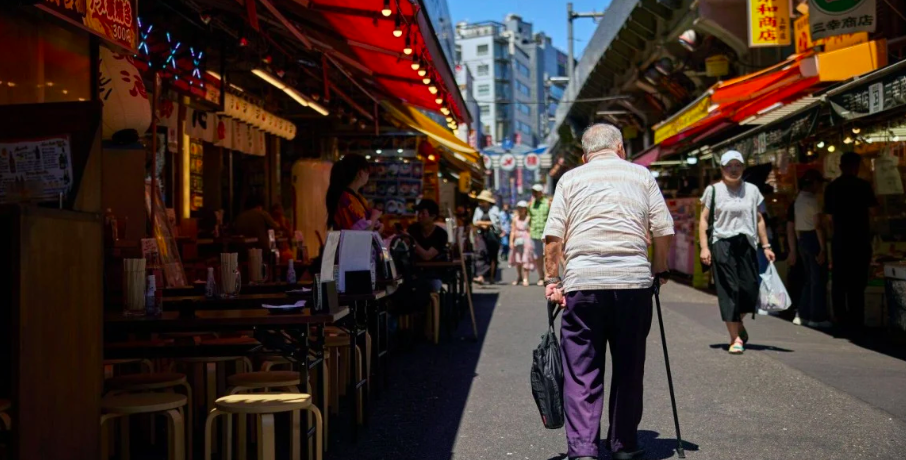Tokyo, elderly people killed in family 'caregiver crisis' alarm
An academic study recorded one homicide every eight days, often accompanied by suicide by the spouse or child who provided home care for the elderly person. The isolation from Covid led to the explosion of the problem. There is a shortage of qualified personnel to provide support.
Tokyo (AsiaNews/Agencies) - According to a study published in recent weeks, from 2011 to 2021 every 8 days an elderly person in Japan was killed by a family member who was their caregiver. In some cases, the latter also took his own life after the extreme gesture.
This dramatic statistic is affected by what is called "caregiver fatigue", which could even worsen over time - according to the study - since the forced isolation imposed by the pandemic has aggravated the desperation of untrained caregivers who have tried to take care of frail relatives often living at home with them.
“It is also likely that there are even more cases, as many have not been documented,” said Etsuko Yuhara, a professor of social work at Nihon Fukushi University in Aichi Prefecture and an author of the research.
Yuhara used the media as sources, identifying 443 deaths among people aged 60 or over who needed care and assistance because they were no longer independent. In 214 cases it was the spouse who killed the partner for whom he was the caregiver, in 206 cases the extreme act was carried out by the child-caregiver.
Thirteen cases involved a sibling killing a brother or sister, seven involved a grandchild killing a grandparent, and the remaining deaths involved other family members.
“There are two main reasons for these murders, and related cases where the caregiver committed suicide later,” Yuhara said. The first is the heavy burden of caring for a family member and the other is relationships within the family. Without any hope that the future held something better, these individuals decided to kill their loved ones and in some cases take their own lives."
The report, among others, refers to an episode intercepted by the Tokyo police who arrested an 86-year-old man found in his home from where he himself had called the authorities to say he had strangled his sick 81-year-old wife, to whom acted as a caregiver. Haruo Yoshida told police that he was simply worn out by his care of her.
“The problem of murders by health workers has existed for some time in Japan, but I have a feeling that it has worsened during the coronavirus lockdown,” said Yoko Tsukamoto, a professor of infection control at the University of Hokkaido Health Sciences.
“People who were probably already struggling to cope with a complex situation, with the advent of the pandemic suddenly found themselves completely isolated and had no one to talk to about the problems they were facing,” she said. Japan has maintained strict measures to contain the coronavirus until the end of 2022.
“The pandemic - he adds - has put the healthcare system to the breaking point and the aid available for people cared for at home was inadequate, while neighborhoods that previously provided a support network for the most vulnerable were suddenly silent.”
Finally, Professor Yuhara believes that the government must do more to encourage young people to work in the social and healthcare sector, which is short of qualified personnel due to low wages: "If this does not happen, Japan will have to open up further borders to foreign healthcare workers".
Tokyo has already taken steps in this direction in recent years, in particular opening its doors to the immigration of nurses and carers from Vietnam. But in this case the problem becomes that of linguistic and cultural barriers, which are not easy to overcome in the Japanese context.
26/08/2017 13:46
12/01/2021 13:49
03/09/2022 13:39







.png)










